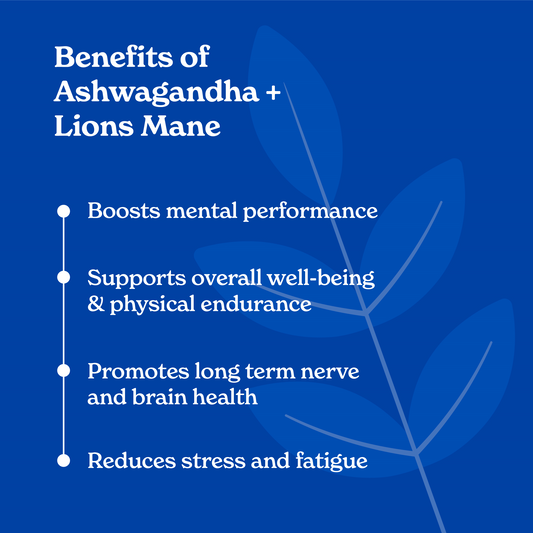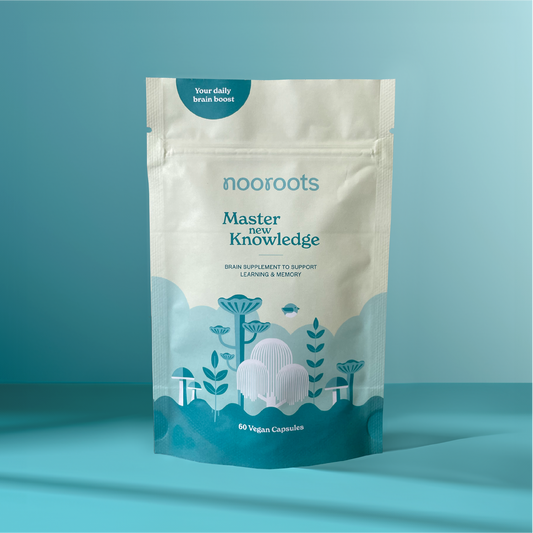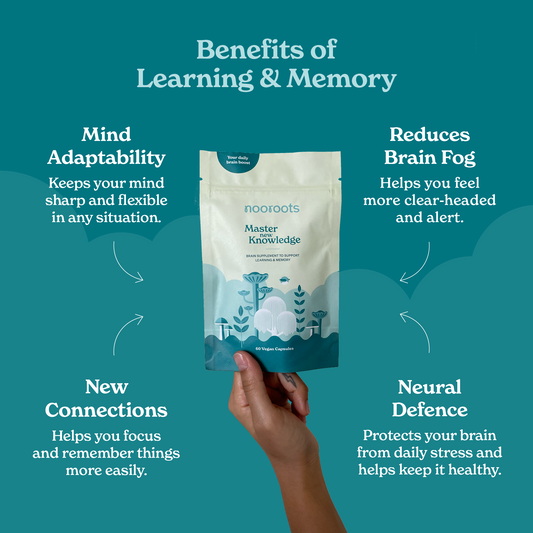Expert Writer and Contributor ✓
About the Author
Tia was awarded a Master of Immunology degree from University College London. She is completing a PhD in Bioengineering at Imperial College London.
About the Contributor
Mus was awarded a Master of Science degree in Medical Biotechnology and Business Management from the University of Warwick.
Do not be fooled. Despite its beautiful and alluring flower, Rhodiola Rosea is one tough herb. From high altitude mountainous regions to the frozen savannahs of Eurasia, the environment Rhodiola Rosea grows in is challenging to the say the least.
The herb has been used for millennia. From the sun scorched earth of the Mediterranean to the choppy ice cold waters of the Northern Sea. Peoples, cultures, and civilisations have relied upon Rhodiola Rosea as an indispensable source of energy - even if we may never know where or how this medicinal plant was originally discovered.
Rhodiola’s first use can be documented in 77 AD, just after the peak of Ancient Greek society, in the famous De Materia Medica. A pharmacopoeia that informs us about the medicines used by Greeco-Roman cultures of antiquity.
This medical knowledge clearly survived through the ‘dark ages’. Appearing in Scandinavia centuries later. Home of the infamously war-hungry Vikings. Eleventh century Norsemen would ingest Rhodiola Rosea to provide them with the vital strength they needed to journey across the treacherous North Sea and conquer new lands.
Scientific Research can now peal back the icy layers of mystery surrounding Rhodiola Rosea. Looking under the microscope has revealed the bio-chemical processes that give this plant its medicinal properties.
Contents
- What is Rhodiola Rosea?
- Rhodiola Rosea Benefits
- Rhodiola Rosea Mechanism of Action
- Rhodiola Rosea Side Effects
- Recommended Dosages of Rhodiola Rosea
Rhodiola Rosea: A Health Guide to Safe and Effective Supplementation

What is Rhodiola Rosea?
Rhodiola Rosea is a flowering plant that has been used for centuries to combat anxiety, fatigue, and depression.
Also known as the “golden root”, use of this plant dates back as far as the Vikings and is even mentioned in the writings of the ancient Greek physician Dioschorides. Extracts of Rhodiola Rosea are often used as dietary supplements to enhance stress-protective activity1.
Rhodiola Rosea Benefits
This flower packs a real punch!
Apart from its obvious visual appeal, Rhodiola Rosea has many nootropic properties. Some of the evidence-based benefits that are linked with Rhodiola Rosea include2:
- Enhanced brain function: Studies have suggested that rhodiola rosea may enhance memory function and learning3, as well as proving a useful tool to counteract age-related diseases4.
- Reduced stress and depression: Rhodiola rosea has been known to enhance the body’s resistance to stress as well as improve symptoms of burnout and depression5.
- Anti-Cancer and anti-diabetic properties: Research suggests that rhodiola rosea may inhibit the growth of bladder, lung, gastric, and colon cancer cells1.
Rhodiola Rosea Mechanism of Action
The golden root, Rhodiola rosea, consists of 140 compounds that contribute to its powerful effects6.
Rhodiola rosea extracts has adaptogenic effects meaning that it helps the body adapt to stress by acting on neuromodulators and the receptors of nerve cells. Furthermore, this allows the rhodiola rosea components to block pain receptors that receive signals sent from the body through the spinal cord to the brain7,8.
The primary active components of rhodiola rosea consist of rosarin, rosavin, and rosin. These components are pharmacologically active and work as antioxidants and neurostimulants.
Antioxidants are crucial in preventing DNA damage by clearing excess free radicals that contribute to oxidative stress and cell damage8. Oxidative stress is caused by an excess of free radical species and is particularly problematic for our brain where it can cause cell and DNA damage.
Stress resistance is often associated with aging, while chronic stress is believed to promote cancer progression.
The unique antioxidant properties of rhodiola rosea can therefore prevent cellular stresses which may contribute to its anti-aging affects and cancer prevention1.
Rhodiola Rosea Side Effects
Rhodiola rosea intake is safe with very few known side effects. At dosages much higher than that used in nooroots formulation, Rhodiola Rosea may cause1,9:
- Dizziness
- Dry mouth
- Excessive saliva
Recommended Dosages of Rhodiola Rosea
There is no set Nutrient Reference Value (NRV) or Safe Upper Limit (SUL) for Rhodiola Rosea. Unlike vitamin and minerals, Governments typically do not establish recommended daily guidelines for plant extracts.
Scientific and clinical research has outlined appropriate guidelines.
It is generally accepted that doses of Rhodiola Rosea 50-600mg/day can produce positive health benefits. Some studies have analysed Rhodiola Rosea up to 1,500mg (milligrams) a day and reported a large margin of safety10
Remember: if you are intaking a supplement in a product or in combination with other vitamins, minerals or plant extracts, then typically lower doses are sufficient to realize the desired benefits.
Learn More About NRV and SUL
The NRV and SUL are two values assigned to vitamins and minerals that are designed to provide guidance on how much of a specific nutrient can be consumed.
NRV can be defined as the amount of a specific nutrient needed to adequately meet known nutritional deficiencies. Whereas the SUL is the highest level of nutrient intake that is likely to pose no risk of bad health effects for almost all individuals in the general population.
It is very safe to consume levels of nutrients greater than the NRV as long as the intake is below the SUL.
At nooroots, we take both these values into consideration when performing research and product development. We work with our scientists and partners to select a nutrient level that is both safe and effective.
Conclusion
How past civilisations that were separated by vast timespans and terrain each independently discovered Rhodiola Rosea may forever be a mystery. Was it chance? A knowledge transfer between different cultures? Could the Vikings have read a copy of the De Materia Medica?
We just don’t know.
What is clear is how each civilisation revered the medicinal benefits that can be achieved by taking Rhodiola Rosea. Science has proven Rhodiola Rosea to enhance brain function and reduce stress and depression. Some studies suggest it may have anti-cancer and -diabetic properties.
There is no consensus on the optimal dose to take. In the research, a wide range of doses from 50 to 500 mg have been sufficient to deliver positive health benefits. Supplementation of up to 1,500 mg did not have any adverse effects on participants.
For those interested in taking the first step, our Learning & Memory Nootropic Supplement at Nooroots offers a carefully formulated introduction to the world of cognitive enhancement—crafted to support both clarity of mind and balance of mood.
Learn more about the other vitamins, minerals and plant extracts we use to give your brain a daily boost
Evidence
- Li, Y.; Pham, V.; Bui, M.; Song, L.; Wu, C.; Walia, A.; Uchio, E.; Smith-Liu, F.; Xiaolin, Z. Rhodiola rosea L: an herb with anti-stress, anti-aging, and immunostimulating properties for cancer chemoprevention. Curr Phamacol Rep. 2017. doi: 1007/s40495-017-0106-1
- 7 Science-Backed Health Benefits of Rhodiola rosea https://www.healthline.com/nutrition/rhodiola-rosea
- Ma, G.; Zheng, Q.; Xu, M.; Zhou, X.; Lu, L.; Li, Z.; Zheng, G. Rhodiola rosea L. Improves Learning and Memory Function: Preclinical Evidende and Possible Mechanisms. Front Pharmacol. 2018. 9. doi: 3389/fphar.2018.01415
- Zhuang, W.; Yue, L.; Dang, X.; Chen, F.; Gong, Y.; Lin, X.; Luo, Y.; Rosenroot (Rhodiola): Potential Applications in aging-related disease. Aging Dis. 2019. 10. doi: 14336/AD.2018.0511
- Ishaque, S.; Shamseer, L.; Bukutu, C.; Vohra, S.; Rhodiola rosea for physical and mental fatigue: a systematic review. BMC Complement Altern Med. 2012. 12. doi: 1186/1472-6882-12-70
- Kasper, S.; Dienel, A. Multicenter, open-label, exploratory clinical trial with Rhodiola rosea extract in patients suffering from burnout symptoms. Neuropsychiatry Dis Treat. 2017. 13. doi: 2147/NDT.S120113
- Farooqui, A.: Potential Treatment Strategies of Dementia with Ayurvedic Medicines. Molecules Mechanisms of Dementia. 2019. https://doi.org/10.1016/B978-0-12-816347-4.00009-X
- Lopes-Lutz, ASD. Analytic Methods – Functional Foods and Dietary Supplements. Comprensive Biotechnology. 2021. https://doi.org/10.1016/B978-0-08-088504-9.00320-2
- Rhodiola: Overview, Uses, Side Effects, Precautions, Interactions, Dosing and Reviews https://www.webmd.com/vitamins/ai/ingredientmono-883/rhodiola
-
Ishaque, S. et al. (2012) ‘Rhodiola rosea for physical and mental fatigue: a systematic review’, BMC Complementary and Alternative Medicine, 12(1). Available at: https://doi.org/10.1186/1472-6882-12-70.







